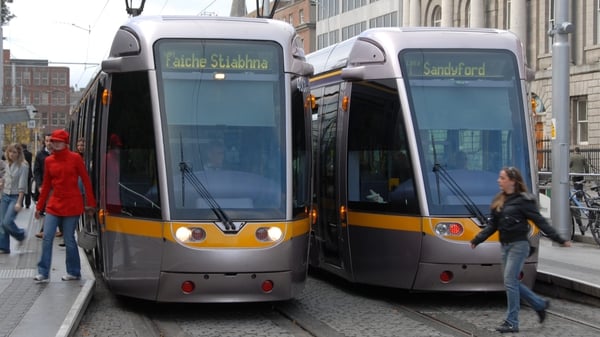Transdev Managing Director Gerry Madden has said that the Labour Court investigation into the Luas pay dispute was a good opportunity for the company to put across its view.
The Luas dispute has triggered 12 days of strikes on the Dublin light rail system.
Speaking after the hearing, Mr Madden said they expected to hear from the Labour Court early next week.
He added that it was good that customers were able to use the Luas today after the drivers called off the strikes scheduled for today and tomorrow.
Meanwhile SIPTU Divisional Organiser Owen Reidy described the bilateral talks with the Labour Court as useful - adding that there had been no direct engagement with Transdev.
He said the drivers had had an opportunity to outline to the Labour Court how they see the dispute being resolved.
He said he expected the court to reflect on what they had heard today and to revert to the company and union early next week.
Mr Reidy confirmed that while the strikes scheduled for today and tomorrow had been cancelled to allow for the Labour Court intervention, there are still six more strike days scheduled for June if the dispute is not resolved in the meantime.
However, he said it was the earnest wish of the drivers that they could resolve the row so that industrial action would become a thing of the past.
ICTU General Secretary Patricia King, who helped to broker the talks said that if the court is going to issue a recommendation, it could do so by Monday afternoon.
Following an intervention by Labour Court Chairman Kevin Duffy involving the Irish Congress of Trade Unions, both Luas operator Transdev and the drivers' union SIPTU agreed to take part in talks in a bid to break the deadlock between the two sides.
Earlier, a Professor of Industrial Relations and Human Resources at UCD said the decision by both parties to attend talks at the Labour Court is significant.
Speaking on RTÉ's Morning Ireland, Professor Bill Roche said the dispute is being carefully watched within the transport sector and it could also be significant beyond that sector.
Prof Roche said that pay bargaining across the economy is currently very orderly, with most unions settling for increases of around 2% per year.
He added that industrial conflict in Ireland is at an all time low.
However, Prof Roche said that this dispute has the potential to derail the current modest process of pay rises.

